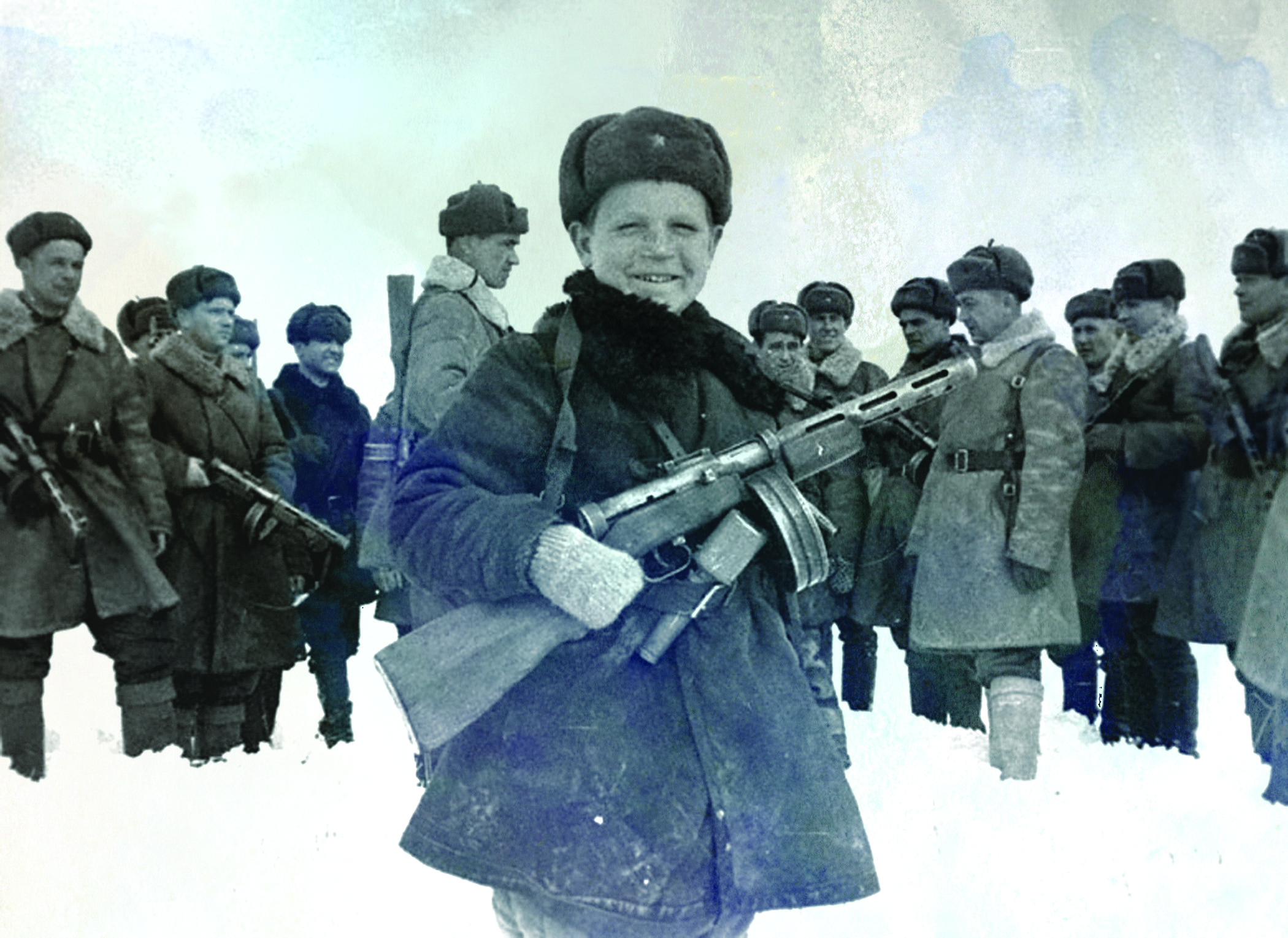Hovering somewhere between oral history and crafted nonfiction, Last Witnesses by Svetlana Alexievich packs a devastating emotional punch
Last Witnesses: An Oral History of the Children of World War II
Svetlana Alexievich. Translated by Richard Pevear and Larissa Volokhonsky. 295 pp.
Random House, 2019. $30
“I saw what shouldn’t be seen…and I was little,” an old man remembers of his eight-year-old self. “When someone cries, I feel better, because I myself don’t know how to cry. I’ve been married twice and twice my wife has left me. No one could stand me for long. It’s hard to love me. I know it…. Many years have passed…. Now I want to ask: Did God watch this? And what did He think?”
The speaker is Yura Karpovich, a driver. He’s one of 100 elderly Soviet citizens, mostly Belarusians, whose early memories of World War II are collected by Svetlana Alexievich, the Belarusian writer and 2015 Nobel Prize in Literature recipient. Alexievich’s signature form is curated oral history that bears witness to seminal tragedies; past works have shed light on the 1986 Chernobyl disaster, the involvement of Soviet female fighters in World War II, and the 1979-1989 Soviet-Afghan War, among other topics. In Last Witnesses, Alexievich shoulders the burden of the war’s most vulnerable Eastern Front victims: the children who miraculously lived to see adulthood.
The book’s recollections follow a pattern: summer holidays interrupted by the announcement of invasion; fathers departing for the army; mothers and children fleeing east, strafed by German attack planes. Homelessness and hunger follow, the latter persisting long after the war is over. In the chaos many children are separated from their parents for years or forever and raised instead in bleak orphanages run by a branch of the internal security service, the NKVD.
Hardest to read are the accounts of growing up under German occupation. Of the interviewees, a third saw family or neighbors murdered in front of them, either by soldiers or by locally recruited polizei. They themselves were tortured, splashed with boiling water for begging, or made to walk in front of patrols in case of mines. Mass shootings and hangings—starting with dogs and cats, moving on to women and children—punished suspected partisan activity, though often the “partisans” were just villagers who had taken to the woods after troops had torched their homes. The child’s-eye descriptions humanize unfathomable statistics: 13.7 million Soviet civilians died under German occupation; 7.4 million by direct violence, 2.1 million by forced labor, and 4.1 million by starvation. Belarussia’s death rate was 25 percent, the highest of any Soviet republic during World War II.
Typical of Alexievich’s interview collections, Last Witnesses is both immensely impressive and immensely frustrating. Hovering somewhere between oral history and crafted nonfiction, it packs a devastating emotional punch, explaining more about the Soviet psyche than a dozen more conventional volumes.
Readers looking for broader understanding of the subject matter, though, will be disappointed. Alexievich never tells us when or where her interviews were taken. (This collection, the book’s first English release, was published in the Soviet Union in 1985.) Nor does she give any historical context in which to place the interviews. Extremely useful here, for example, would have been a foreword explaining the partisan war, in which villagers were preyed on equally by the Wehrmacht and by NKVD-directed guerrillas.
More problematic is Alexievich’s cavalier treatment of her material. As outlined by her French translators in a little-noticed academic paper published in 2009, the writer shuffled quotes from one witness to another between editions of earlier works and occasionally may even have put her own words into a witness’s mouth. When the translators asked if she might consider donating her Chernobyl tapes to a French museum, they were shocked to discover that she had lost them.
This is not to say that Alexievich is dishonest. On the contrary, she stresses that she is neither a historian nor a journalist, but a writer—or if a historian, a “historian of emotions” rather than of events. Insightful and passionately engaged, she thoroughly deserves her Nobel, and her books are required reading for any serious student of the Soviet Union. But when the Kremlin is shamelessly bending history to its own ends, it is a particular pity that in Alexievich’s work, we can never be quite sure, exactly, who is speaking. ✯
—Anna Reid is the author of the 2011 book Leningrad: The Epic Siege of World War II.
This article was published in the February 2020 issue of World War II.





